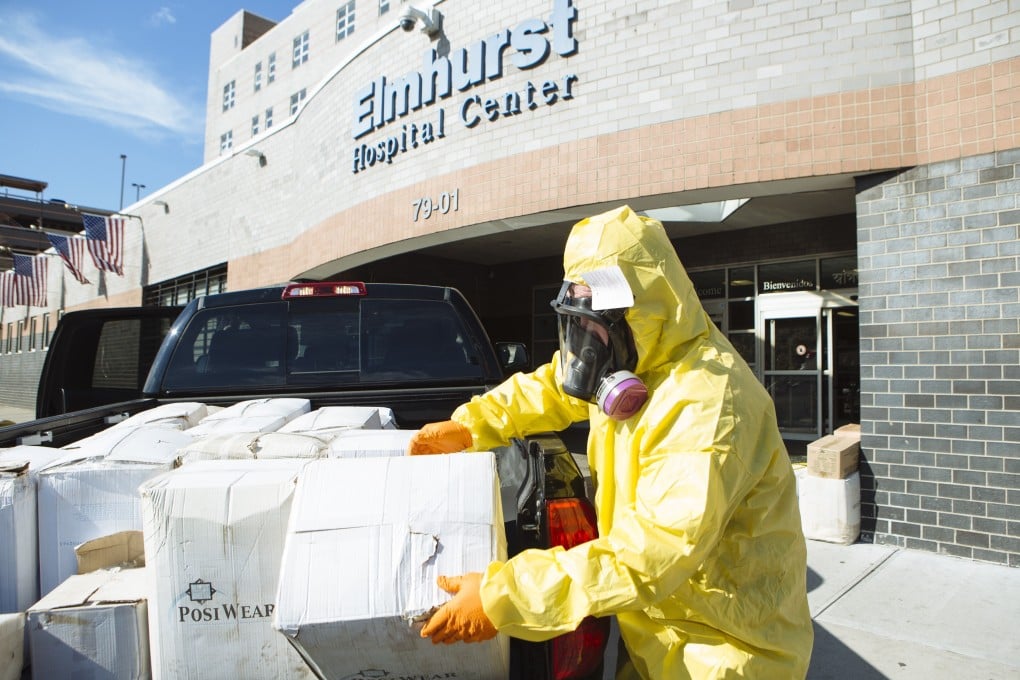Advertisement
Coronavirus latest: US sees record 6.6 million weekly unemployment claims, as global infections near 1 million
- Some 6.6 million people in the US have filed claims for unemployment benefits, setting a new record for the second week in a row
- Global cases are fast rising to hit 1 million, with Spain’s death toll crossing 10,000, and Indonesia recording the highest casualty rate in Asia behind China
Reading Time:13 minutes
Why you can trust SCMP

The number of workers in the United States filing claims for unemployment benefits last week shot to a record high for a second week in a row – topping 6 million – as the world was approaching 1 million confirmed coronavirus cases on Thursday.
Initial claims for unemployment benefits rose to 6.65 million in the latest week from 3.3 million the previous week, the US Labour Department said on Thursday.
More than 80 per cent of Americans are under some form of lockdown, up from less than 50 per cent a couple of weeks ago, leaving state employment offices overwhelmed by an avalanche of applications.
Advertisement
Economists say the US should brace for jobless claims to continue escalating, partly citing generous provisions of a historic US$2.2 trillion fiscal package signed by President Donald Trump last Friday, and the federal government’s easing of requirements for workers to seek benefits.

Meanwhile, as governments expanded lockdowns that have affected half the planet, global agencies warned that parts of the world could face food shortages if authorities fail to navigate the crisis properly.
Advertisement
Tedros Adhanom Ghebreyesus, head of the World Health Organisation (WHO), said he was “deeply concerned about the rapid escalation and global spread of infection”.
Advertisement
Select Voice
Choose your listening speed
Get through articles 2x faster
1.25x
250 WPM
Slow
Average
Fast
1.25x